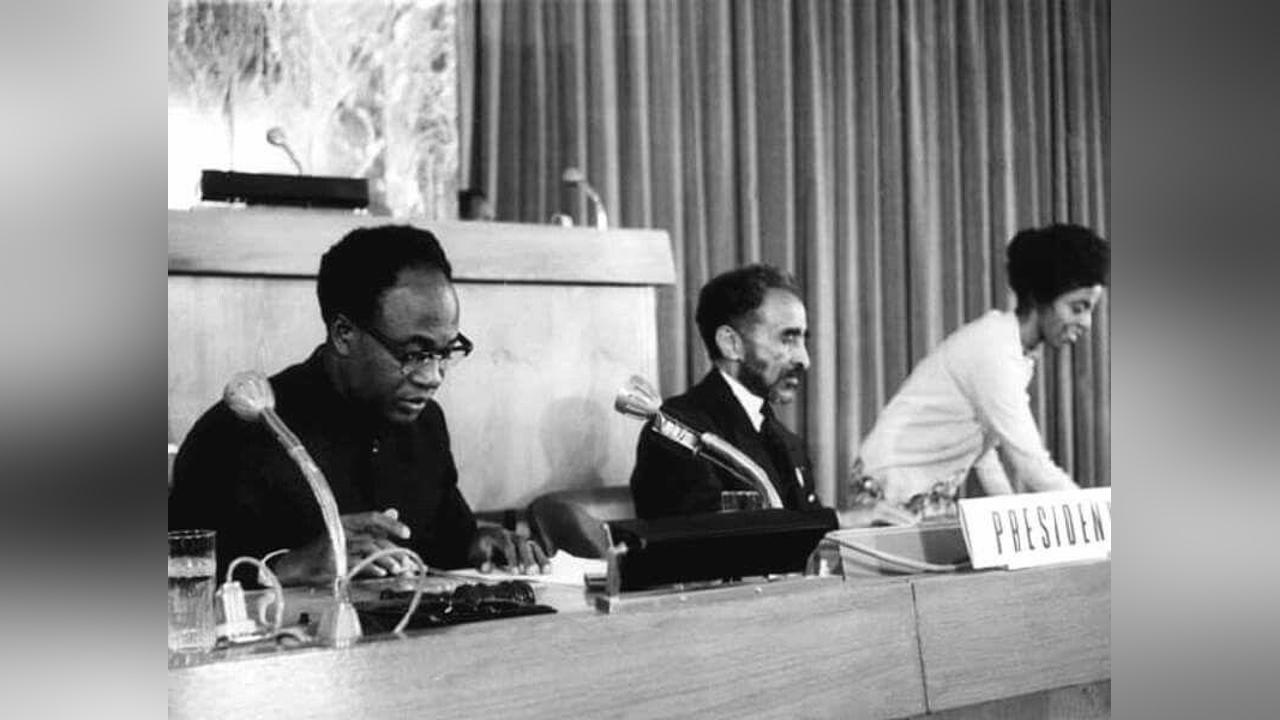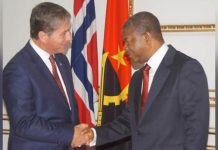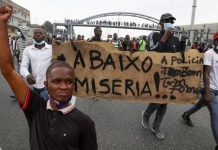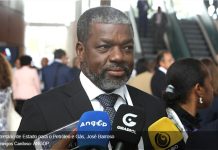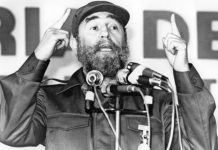Africa-Press – Angola. Africa Liberation Day comes amid an escalating campaign by the West and their allies to stifle sovereignty and sustainable development.
Solidarity Statement
Note: The following solidarity statement was prepared and delivered in part to the African Liberation Day program organized by the All-African People’s Revolutionary Party, (A-APRP-GC) under the theme “Pan-Africanism: Waging Class Struggle in Africa and the Diaspora, Fighting for the One United Socialist Africa!” on Sat. May 27, 2023. The event was broadcast over the “Africans on the Move” internet radio program hosted by Lee Robinson of the African Awareness Association based in Richmond, Virginia. Speakers from various organizations made presentations including the Million Women March, the Committee to Free Jamil al-Amin, the Free Mumia Abu-Jamal Movement, among many others. You can listen to the podcast of the event at the following link: (https://www.blogtalkradio.com/africa-on-the-move/2023/05/27/african-liberation-day-nakba-day–may-27-2023)
May 25, 2023 represents the 60th anniversary since the formation of the Organization of African Unity (OAU), the forerunner of today’s African Union (AU).
During 1963, over 30 independent African states held a summit meeting in Addis Ababa, Ethiopia where they agreed to put aside differences in order to initiate a continental organization.
Since the early 1960s, two distinct blocs had come into existence in the post-colonial period of historical development. The Casablanca Group, which included states such as Ghana, Guinea, Mali, Egypt, Algeria, among others maintained an anti-imperialist posture in regard to their foreign policy imperatives.
Contrastingly, the Monrovia Group, which constituted the majority of states on the continent at the time, took a far more moderate position in relations to national development and international relations. Developments during the early 1960s witnessed the escalation of the armed struggles for national independence in Algeria along with other European colonies and settler states such as Angola, Mozambique, Guinea-Bissau, South Africa, Rhodesia (later Zimbabwe), Southwest Africa (later Namibia), etc.
The overthrow and assassination of the first democratically elected prime minister of the former Belgian Congo, Patrice Lumumba, during 1960-1961, served to heighten anti-imperialist sentiments among progressive and socialist oriented states as well as among the masses of workers, youth and farmers on the continent. Therefore, from the onset, the OAU represented a compromise between the moderate and anti-imperialist states.
There were both positive and negative aspects of the OAU policy in its formative years. An OAU Liberation Committee was established to provide material and political aid to those liberation movements and political parties still fighting for national independence.
However, the OAU position of non-interference in the internal affairs of member-states allowed for the destabilization and overthrow of governments by imperialist forces which backed counter-revolutionary elements within African societies. Within less than three years, the revolutionary Pan-Africanist government of the Republic of Ghana headed by President Kwame Nkrumah was forcefully and undemocratically removed in a Central Intelligence Agency (CIA) instigated coup by lower-ranking military officers and the police.
Nkrumah was a leading co-founder of the OAU, which in actuality stemmed from the ideological views expressed by the Convention People’s Party (CPP) government in Accra. Even prior to taking power as Leader of Government Business in 1951, Prime Minister in 1954 and as an independent head-of-state beginning on March 6, 1957, Nkrumah was a strong advocate of African unity.
As early as 1947 in his first book entitled, “Toward Colonial Freedom: Africa and the Struggle Against World Imperialism”, which was reprinted in 1962 when he was President of the First Republic of Ghana, Nkrumah identifies the economic machinations of European domination as the basis of African oppression and exploitation. In later years, Nkrumah would publish “Africa Must Unite”, which was released at the founding summit of the OAU in May 1963, “Consciencism: Philosophy and Ideology for Decolonization” released in 1964 and “Neo-Colonialism: The Last Stage of Imperialism”, issued in 1965, which proved too powerful for the United States since it pointed to the central role of Washington and Wall Street in the continuing underdevelopment of Africa and many other geopolitical regions of the world.
Contained in these texts are severe indictments of imperialism and the imperatives of African unification under socialism. Although these books were published six decades ago, their perceptions of the African situation remain relevant.
Today, across the continent, efforts by imperialism to stifle African development and unification abound. In West Africa we have experienced the recrudescence of military coups carried out by military elements with close ties to the U.S. Africa Command (AFRICOM).
In the Republic of Sudan, a major center of destabilization, the imperialists and their cohorts have armed and politically empowered military structures which have left millions traumatized and displaced. Hundreds of officially documented deaths have occurred in Sudan, an oil-rich and geostrategic state which could play a monumental role in the struggle for anti-imperialism and African unity.
As was illustrated in neighboring Federal Democratic Republic of Ethiopia, there must be African solutions to African problems. At the initiative of the AU, a series of negotiations were held in South Africa and Kenya which resulted in the existing peace accord between the government of Prime Minister Abiy Ahmed and the Tigray People’s Liberation Front (TPLF).
Yet in the Republic of Sudan, the leadership of the Armed Forces (SAF) and the Rapid Support Forces (RSF) refused to meet in neighboring Republic of South Sudan for peace talks. Instead, it would take the Kingdom of Saudi Arabia and the U.S. to convene the talks. Nonetheless, the peace has still not been won.
The role of military interests in African politics was explained by Nkrumah in his seminal work entitled “Class Struggle in Africa”, published while he served as Co-President of the People’s Revolutionary Republic of Guinea in 1970. Most of the armed forces and police structures in independent states were inherited from the colonial era. Their political orientation is often dominated by capitalism and neo-colonialism. This set of social circumstances require a revolution from below which establishes the rule of the majority class interests of the workers and farmers of Africa.
Socialist Revolution in Africa and the Diaspora is the Ultimate Solution
In the chapter entitled “Socialist Revolution” in the book “Class Struggle in Africa” openly proclaims that the transformation of society from capitalist to socialist relations of production provides the only solution to the continental crisis. However, imperialism and their surrogates will not relinquish power without a struggle to overcome their control of the oppressive capitalist and colonial states.
Nkrumah says in this regard that:
“The highest point of political action, when a revolution attains its excellence, is when the proletariat—compromising workers and peasants—under the leadership of a vanguard party the principles and motivations of which are based on scientific socialism, succeeds in overthrowing all other classes. The basis of a revolution is created when the organic structures and conditions within a given society have aroused mass consent and mass desire for positive action to change or transform that society. While there is no hard and fast dogma for socialist revolution, because no two sets of historical conditions and circumstances are exactly alike, experience has shown that under conditions of class struggle, socialist revolution is impossible without the use of force. Revolutionary violence is a fundamental law in revolutionary struggles. The privileged will not, unless compelled, surrender power. They may grant reforms but will not yield an inch when basic pillars of their entrenched positions are threatened. They can only be overthrown by violent revolutionary action.” (p. 80)
In this same book, Nkrumah views the African Revolution as part and parcel of the world socialist movement against capitalism and imperialism. He views the African revolutionary struggle as being worldwide encompassing the people of African descent in the Diaspora of the Western Hemisphere.
According to Nkrumah:
“The African revolutionary struggle is not an isolated one. It not only forms part of the world socialist revolution but must be seen in the context of the Black Revolution as a whole. In the U.S.A., the Caribbean and wherever Africans are oppressed, liberation struggles are being fought. In these areas, the Black man is in a condition of domestic colonialism and suffers both on the grounds of class and of color. The core of the Black Revolution is in Africa, and until Africa is united under a socialist government, the Black man throughout the world lacks a national home. It is around the African peoples’ struggles for liberation and unification that African or Black culture will take shape and substance. Africa is one continent, one people, and one nation…. The total liberation and the unification of Africa under an All-African socialist government must be the primary objective of all Black revolutionaries throughout the world.” (pp. 87-88)
These observations and conclusions remain elusive but compelling in the third decade of the 21st century. Nonetheless, the existing crises of capitalism and imperialism provide openings for Africans and other oppressed and exploited peoples to wage a protracted struggle for genuine liberation and socialism.
For More News And Analysis About Angola Follow Africa-Press

